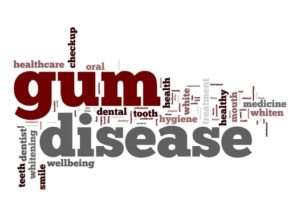How Wisdom Tooth Extraction Can Reduce The Risk Of Periodontal Disease


The Relationship Between Impacted Wisdom Teeth And Periodontal Disease
Your wisdom teeth are at the back of your jaw, which is challenging enough to keep clean when the wisdom teeth erupt properly. When they are impacted, as wisdom teeth are in so many patients, it can be even more difficult to thoroughly remove bacteria buildup by brushing and flossing alone. When that bacteria proliferates, it can attack the gum tissue and cause periodontal disease.
Gum disease is not the only risk associated with impacted wisdom teeth, which can also develop cysts, tumors and abscesses in addition to causing discomfort for patients and pushing the other teeth out of alignment. To avoid these consequences, many patients opt to have impacted wisdom teeth removed as a preventive measure.
Wisdom Tooth Extraction: What To Expect
Patients work with an oral surgeon to have their wisdom teeth extracted because surrounding bone tissue must first be removed in a surgical procedure before impacted wisdom teeth can be accessed and removed. Ideally, the wisdom teeth will be removed before patients reach their late 20s, because the roots get longer and more entrenched in the jaw after that point, making it more challenging to extract them.
Although wisdom tooth extraction does involve a surgical procedure, it is completed in an outpatient setting. Your surgeon will take steps to maximize your comfort, including administering local anesthetic and some form of sedation.
You will receive thorough post-operative instructions for self-care to reduce your risk of complications like dry sockets or infection. Follow these instructions closely and ask any questions that you may have. Additionally, be sure that you know what symptoms, such as persistent bleeding or severe pain, warrant immediate follow up with our office for further evaluation.
If you value your oral health and want to take steps to prevent periodontal disease, you should consider wisdom tooth extraction. Contact Central Oklahoma Oral & Maxillofacial Surgery Associates to schedule an initial consultation.